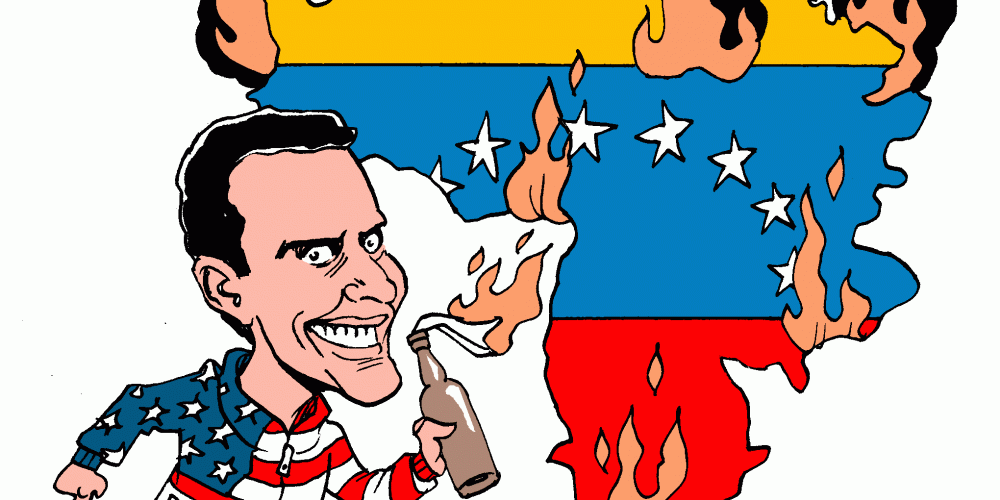Last November a very impressive peace conference was held in Dublin: the First International Conference against US and NATO Bases. The main impetus for this conference came from the peace movement in the United States.
Many of the participants showed their seriousness and determination in organising the Embassy Protection Collective to defend the Venezuelan embassy in Washington from being handed over to the impostor created by the US government.
As the puppy puppet Juan Guaidó failed in his third attempt to organise a coup against the democratically elected President Maduro, and as the US government stepped up its illegal economic war against Venezuela, these peace activists moved in to the embassy, at the invitation of the legitimate Venezuelan government.
The US government wishes to hand over the embassy to the self-proclaimed “interim president,” Guaidó, whom it trained and promoted as its agent. Unusually—though it is well experienced in organising coups in Latin America—the United States is quite open in its determination to take over control of Venezuela’s oil and mineral resources and to reverse the social progress of the Bolivarian Revolution. Its spokesperson, John Bolton, said so explicitly, quoting the Monroe Doctrine and stating that American companies would better manage the oil industry.
The police tolerated the harassment mounted by a violent and abusive mob of Venezuelan émigrés, who abused and assaulted supporters and stopped food being delivered to the occupants. The police arrested and beat supporters for throwing food to those inside. Their electricity and water were disconnected, though they had been paid for.
Finally, the police moved in and arrested the four remaining occupants of the embassy, showing that the Trump regime has no more concern for US law than it has for international law. The Embassy Protection Collective was acting entirely lawfully in holding the embassy building.
The brave action of the Embassy Protection Collective has received little publicity in the corporate media. Exceptionally, there was one report by Suzanne Lynch in the Irish Times.
The United States, with its allies in the European Union and its client states in Latin America, wishes to supplant the elected president with its own appointee. However, the existing government continues to be recognised by the majority of countries in the United Nations. Therefore the peace movement activists can put up a strong legal defence of their action. They have been upholding the basic principles of international law, and they deserve the support of all who value the sovereignty of nations and the preservation of peace.






